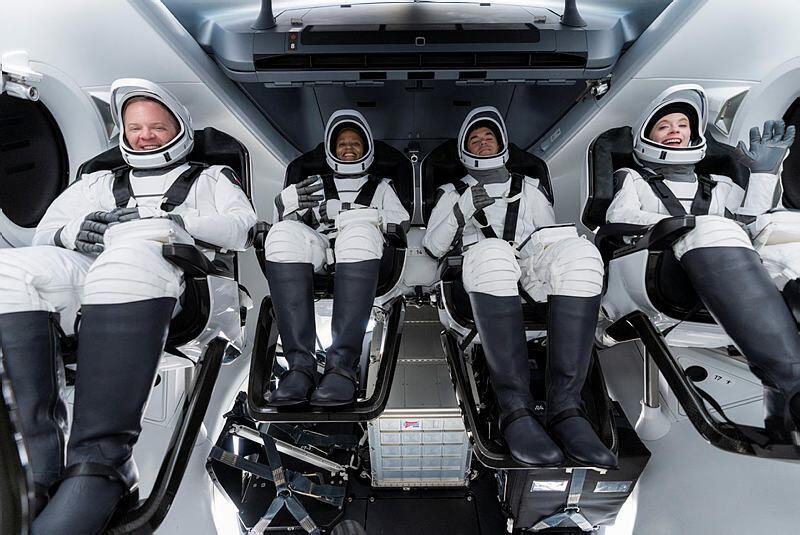Getting your Trinity Audio player ready...
Women appear more resilient to spaceflight stresses like microgravity and cosmic radiation, exhibiting less gene disruption, faster Earth recovery, and better tolerance, potentially due to pregnancy adaptations, according to a new study published by Nature Communications last week.
However, human biology's response to prolonged spaceflight is still poorly understood, with debates on whether humans can withstand long Mars missions due to radiation risks like kidney damage and mitochondrial harm.
1 View gallery


The preliminary study heavily utilized data from the 2021 Inspiration4 civilian spaceflight mission
(Photo: AP)
Most spaceflight body changes reverse within 3 months of Earth's return, indicating potential for long-term space travel, but secondary radiation worsens astronaut harm. Pharmaceuticals and a space biology database may reduce health risks.
The preliminary study heavily utilized data from the 2021 Inspiration4 civilian spaceflight mission. Findings on women's resilience are preliminary, with only 2 men and 2 women studied for immune response.
This article was written in collaboration with Generative AI news company Alchemiq
Sources: Futurism, The Guardian, newsbytesapp.com, medicalxpress.com, newser.com, wionews.com

